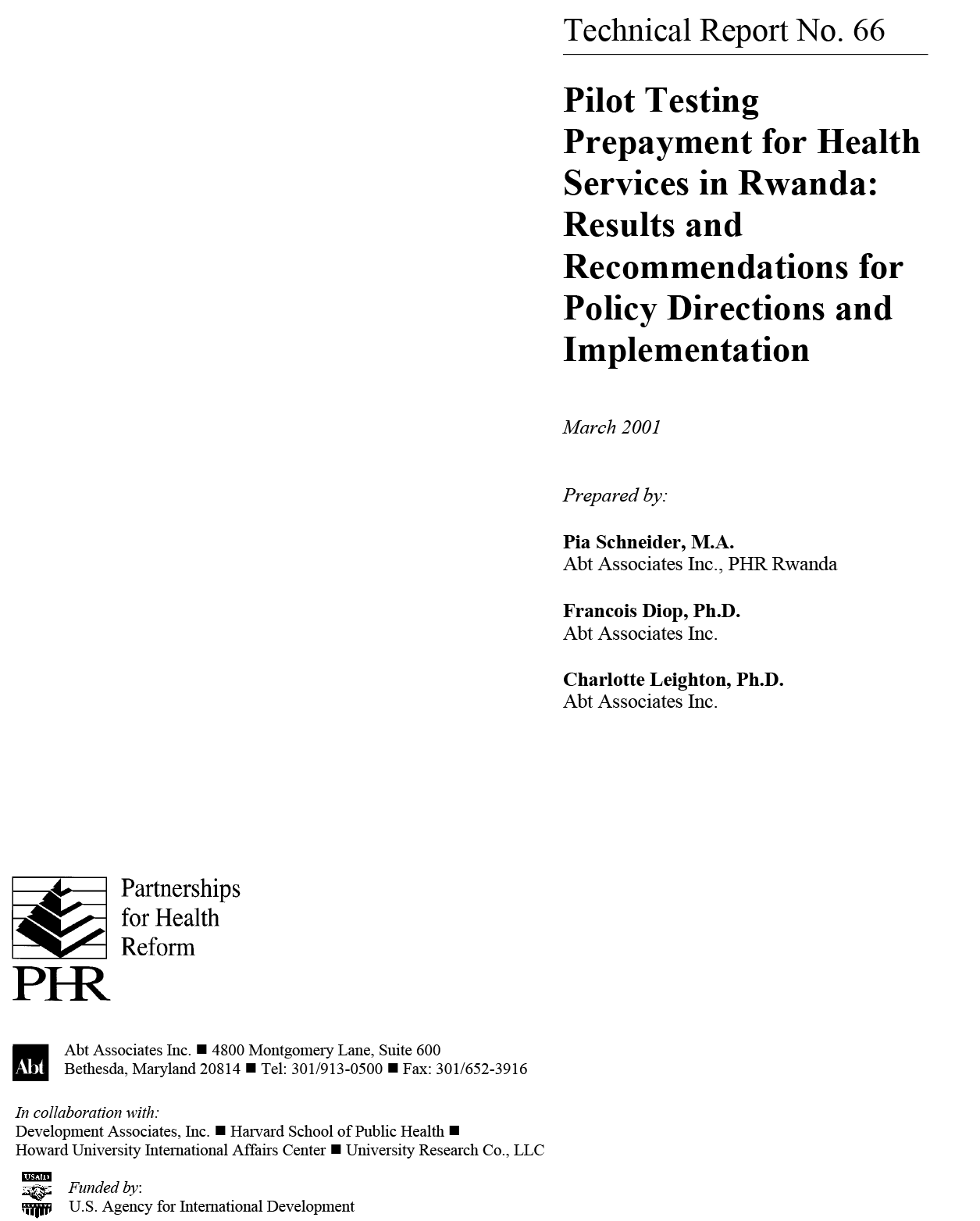
Resource Library
Pilot Testing Prepayment for Health Services in Rwanda: Results and Recommendations for Policy Directions and Implementation
Rwanda ranks among the poorest countries in the world. With the introduction of user fees in 1996, utilization of primary health services fell from 0.3 consultations per capita in 1997 to a low of 0.25 consultations per capita in 1999, raising concerns about the poor's financial access to health care and the unused capacity of health facilities. Dire socioeconomic conditions, low consultation rates, and the high prevalence of communicable diseases contributed to the highest infant, child, and maternal mortality rates in Sub-Saharan Africa. In 1999, the Rwandan Ministry of Health, in collaboration with three rural district communities and with the technical and financial assistance from the Partnerships for Health Reform project, developed and implemented a pilot activity that included 54 prepayment health insurance plans managed by community members. Member benefits cover preventive and curative care in health centers and ambulance transport to the district hospital, where a limited package of services is available. Using a quasi-experimental design, the impact of the prepayment pilots on equity of access and financing was evaluated with data from providers, insurers, households, stakeholders, and patient exit interview surveys. This report draws first-year results of the Rwanda prepayment pilot test from different analyses conducted and compares these prepayment accomplishments with the Ministry of Health's objectives.
Resource Type : Report
Country : Rwanda
Year : 2005-08-26T17:15:00
Language : English
Project : SHOPS


